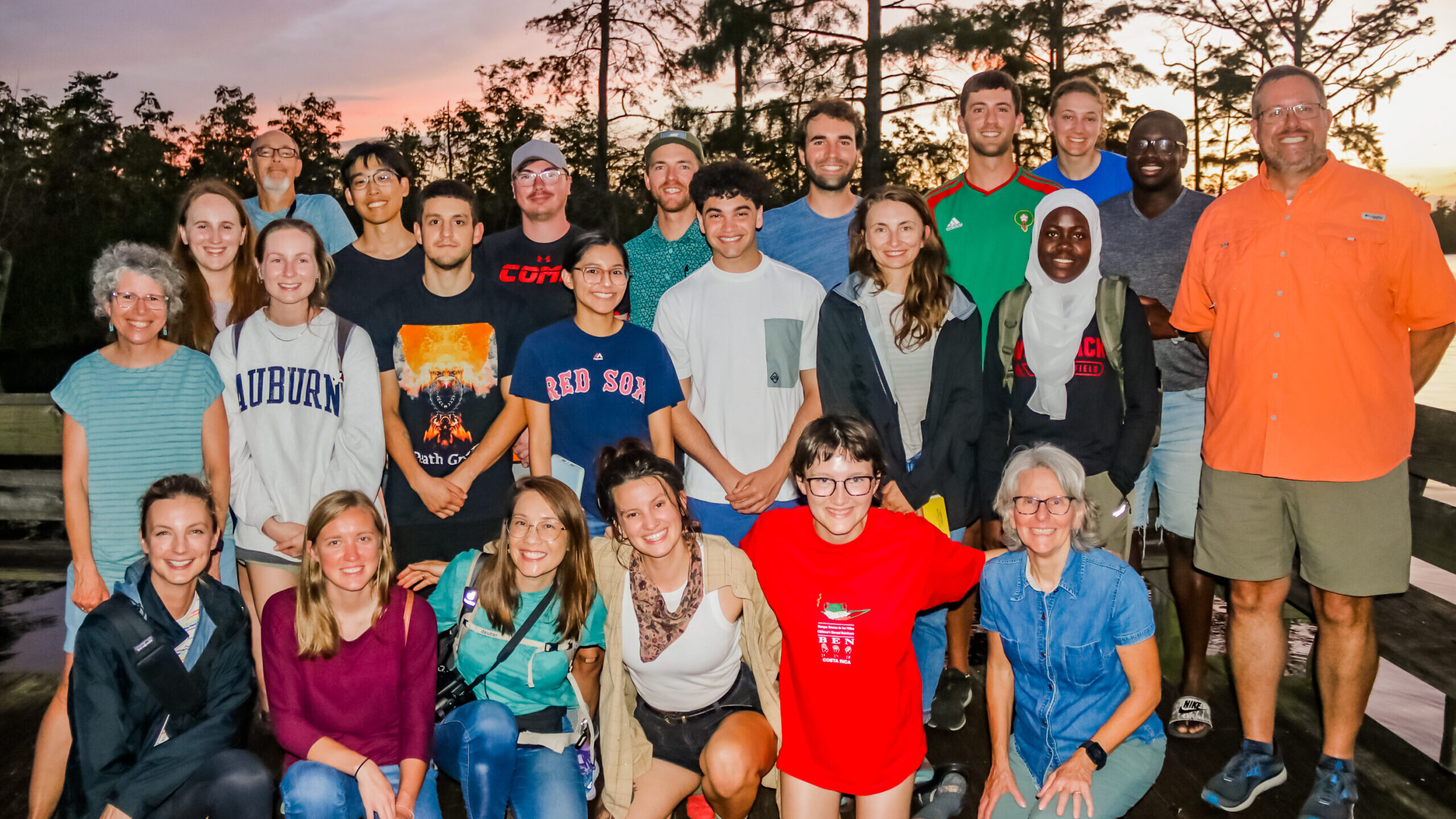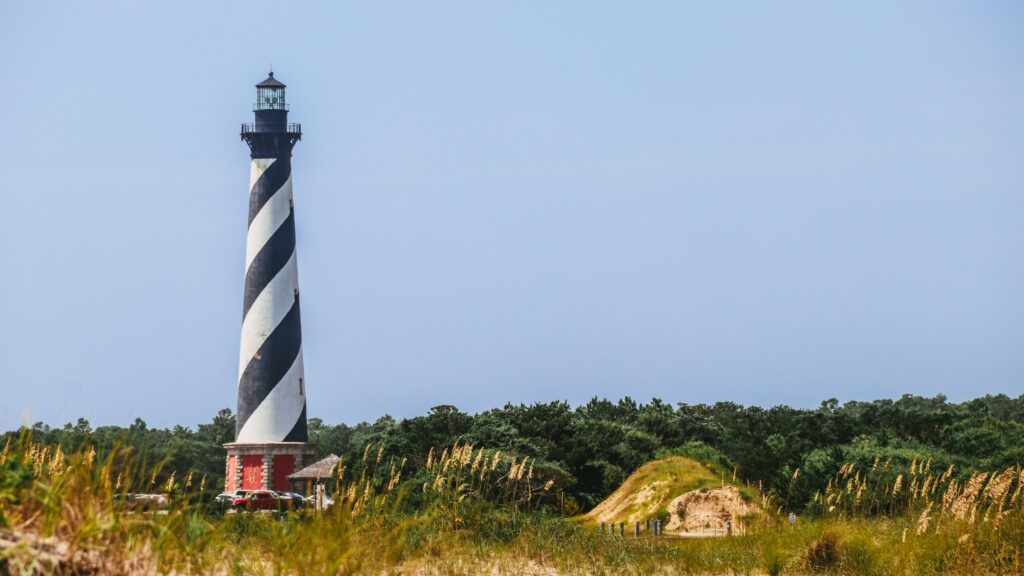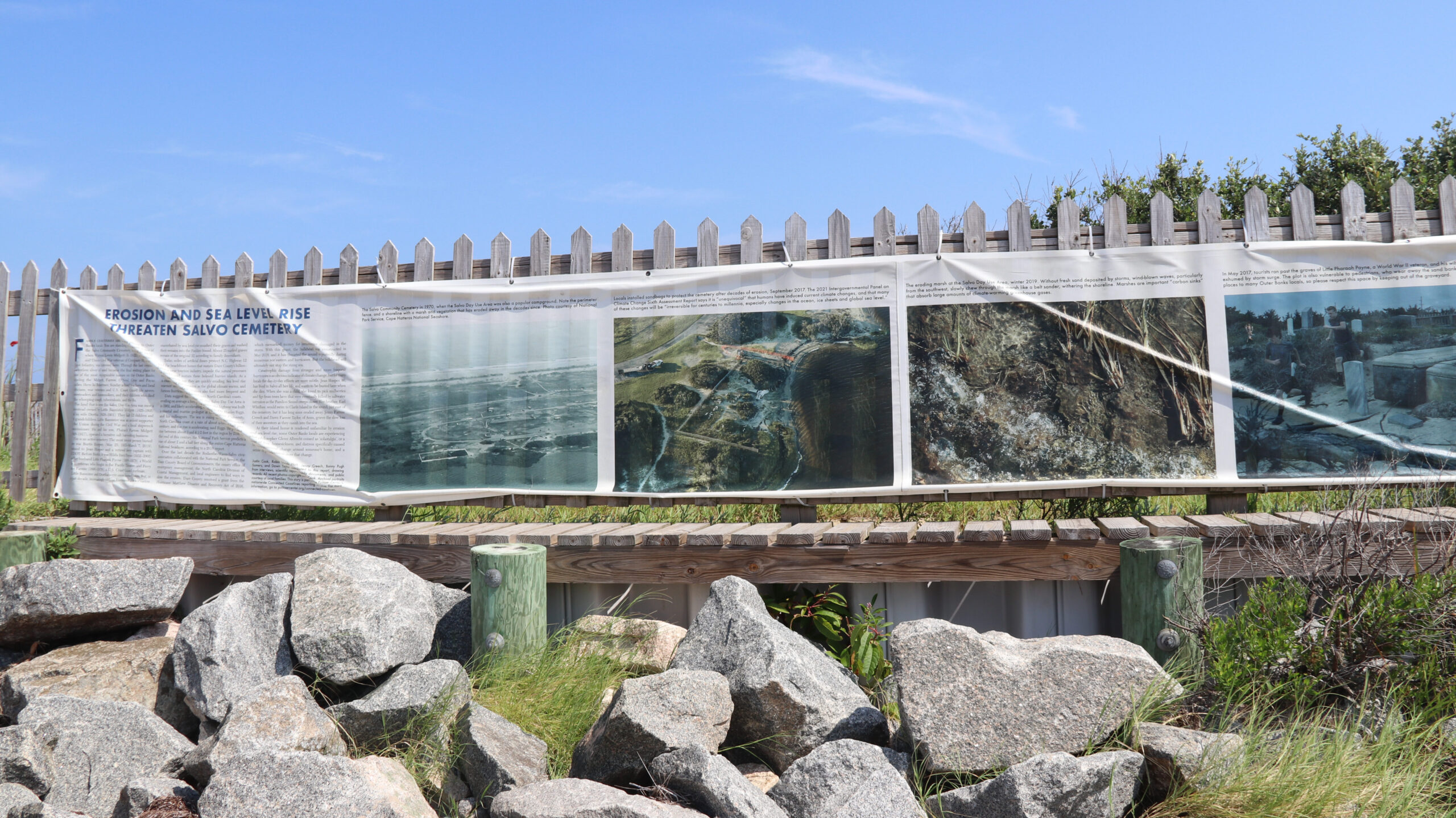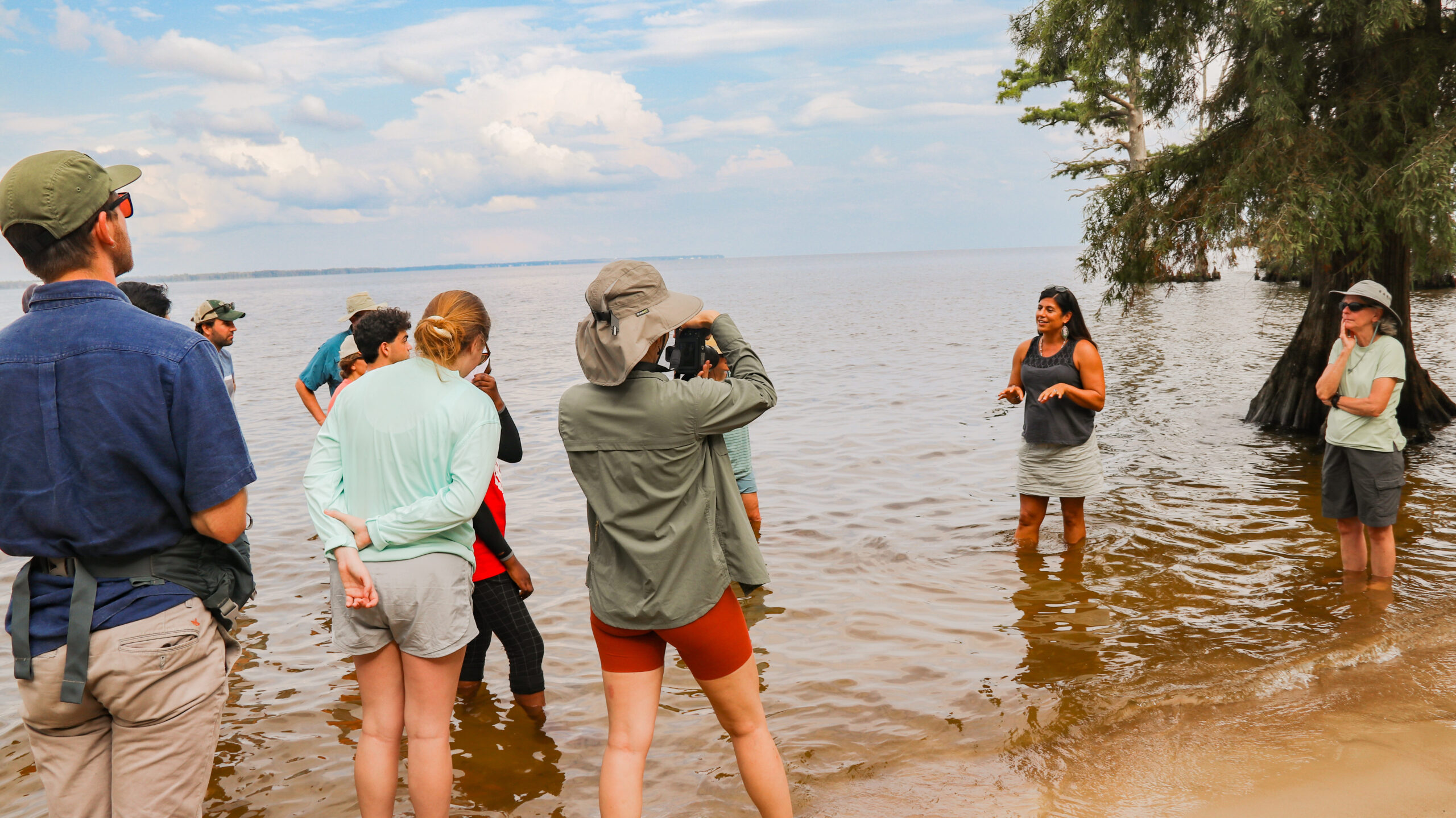Reflections on the 2023 Climate Adaptation Science Retreat and Field Intensive

Last week, the SE CASC hosted the 2023 Climate Adaptation Science Retreat on the Albemarle Peninsula. This six-day event was packed with climate adaptation training, field trips, and exciting guest speakers. The 2023-24 Global Change Research Fellows were accompanied by seven graduate students from our consortium universities, including Auburn University, Duke University, University of Florida, and University of Tennessee at Knoxville. Students spent the week involved in both classroom and field learning, developing friendships and relationships with both land and people.
Not only were students introduced to SE CASC staff, but they were also offered the opportunity to connect with 18 additional speakers and presenters from the region and beyond throughout the week. Each of these presenters shared unique perspectives on climate change and adaptation efforts. Students witnessed the impacts of sea level rise and beach erosion during a field trip to Cape Hatteras National Seashore. Superintendent Dave Hallac led the students on a tour along the barrier islands of the Outer Banks, sharing the natural and cultural resource management challenges and adaptation decisions faced at the Park. Students visited the original site of the Cape Hatteras Lighthouse, learning about how it was relocated 2900 feet inland in 1999 to protect against the rapid shoreline erosion causing the Atlantic Ocean to encroach on the base of the lighthouse.

The tangible effects of sea level rise and coastal erosion were further emphasized on a visit to the Salvo Day Use Area, site of the Salvo Cemetery, a threatened cultural resource. Where once was a community center campground, now lies felled trees and an encroaching shoreline.

Additional field trips involved visiting Nags Head Woods Preserve, Alligator River National Wildlife Refuge, and Bertie Beach. At Nags Head Woods, Aaron McCall from The Nature Conservancy described regional restoration efforts led by their organization. While at Alligator River NWR, students heard from Kelley Van Druten, Wildlife Refuge Specialist, who shared the climate impacts and adaptation challenges experienced by a FWS refuge system. Lastly, a trip to Bertie Beach was accompanied by an enthralling conversation with Beth Roach, National Water Conservation Manager of the Sierra Club. With their feet in the water, students listened as Beth shared the climate impacts and adaptation challenges of tribal communities.

After an intensive week of classroom and field learning, the students ended the week with presentations of communications projects developed over the week. These projects ranged from poems and artistic pieces to story maps and computer code, all of which were inspired by events/activities of the field intensive.
This experience was certainly one that will not be forgotten by the students. In just one week, they were able to develop friendships and make connections with professionals in their field. They learned about climate modeling, decision-making, co-production, tribal engagement, and observed the impacts of climate change both through story-telling and site visits.
A big thank you goes out to the Eastern 4-H Center in Columbia, NC, for graciously hosting this event at their beautiful retreat center. We would also like to thank SE CASC staff, Ryan Boyles, Mitch Eaton, Marie Schaefer, and Kasia Nikiel, in addition to our 18 other speakers who led various sessions throughout the week. Finally, we would like to thank Cari Furiness, Becky Irwin, Michelle Jewell, and Kristen Fontana for putting together an amazing agenda and coordinating the success of the event!
- Categories:
